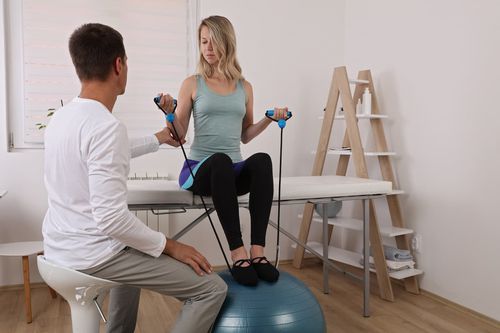What is Kinesiology?
Kinesiology is a system of natural healthcare that combines muscle testing and monitoring, together with the principles of Traditional Chinese Medicine (TCM), to assess energy and body function. It applies a range of healing techniques to improve health and general wellbeing and increase vitality.

How Does Kinesiology Work?
Kinesiology has a fundamental premise that the human body has an innate healing energy and is doing its best to care for itself at all times, but it needs to be helped sometimes into a better position to achieve this care.
Kinesiology recognises that energy flows within the body's energy pathways or meridians that correspond to the organs and tissues in the physical body. This matrix is what makes the body a living, feeling being. Through muscle testing, the flow of energy in the body can be evaluated and the overall state of the structural, chemical or emotional balance of the body can be determined.
Kinesiology, in this way, taps into the energies that other modalities do not necessarily assess. Kinesiology looks beyond the symptoms as it doesn't diagnose or treat diseases. It is only concerned with the imbalances of the energy because restoring balance to the energy systems of the body helps the person become closer to achieving his or her goals.
What are the Benefits of Kinesiology?
Kinesiology can benefit all areas of your life as it identifies and corrects energy imbalances in the body that prevent it from healing itself. Stressful events increase cortisol levels that throw your mind, body and emotions out of kilter. A kinesiologist can address a wide array of physical, mental and emotional issues, including:
- Back pain
- Common aches
- Stress
- Confusion
- Injuries
- Depression
- Digestive disorders
- Fatigue and tiredness
- Allergies
- Nervous disorders
- Sports injuries
- Learning disabilities
- Attention deficit hyperactivity disorder (ADHD)
- Stuttering and other speech disorders
- Sleep problems
- Problems with personal development
- Bedwetting
- Poor self-confidence
What Can You Expect From Kinesiology?
A kinesiology session can last 60 minutes to an hour and a half. It begins with the kinesiologist asking the client what issues they want to address, then the latter lies down on a massage table fully clothed for the muscle testing. Clients are advised to wear loose, comfortable clothing that doesn't restrict their movement as their arms and legs will be raised repeatedly by the practitioner during the muscle testing.
Muscle testing can identify the root cause of the problem based on the response of a muscle group to the practitioner's questions. A weak response signifies stress, pain or trauma somewhere in the person's physical, emotional or mental aspect, while a positive response signifies good health. Identifying and eliminating the energy blockage restores balance to the body and allows it to self-heal. A kinesiologist usually employs a wide range of healing techniques like gentle acupressure and stress-release techniques.
A kinesiology session can be done in person or online. The latter works in the same way as the first, except that the practitioner conducts surrogate muscle testing, wherein they set their intention to heal their client and then test their own muscles to obtain information about the latter's energy system.
Is Kinesiology Safe?
Kinesiology is a safe, noninvasive therapy that can benefit everyone from infants to senior citizens. There have been no reports of adverse events linked to muscle testing since its inception several centuries ago.




